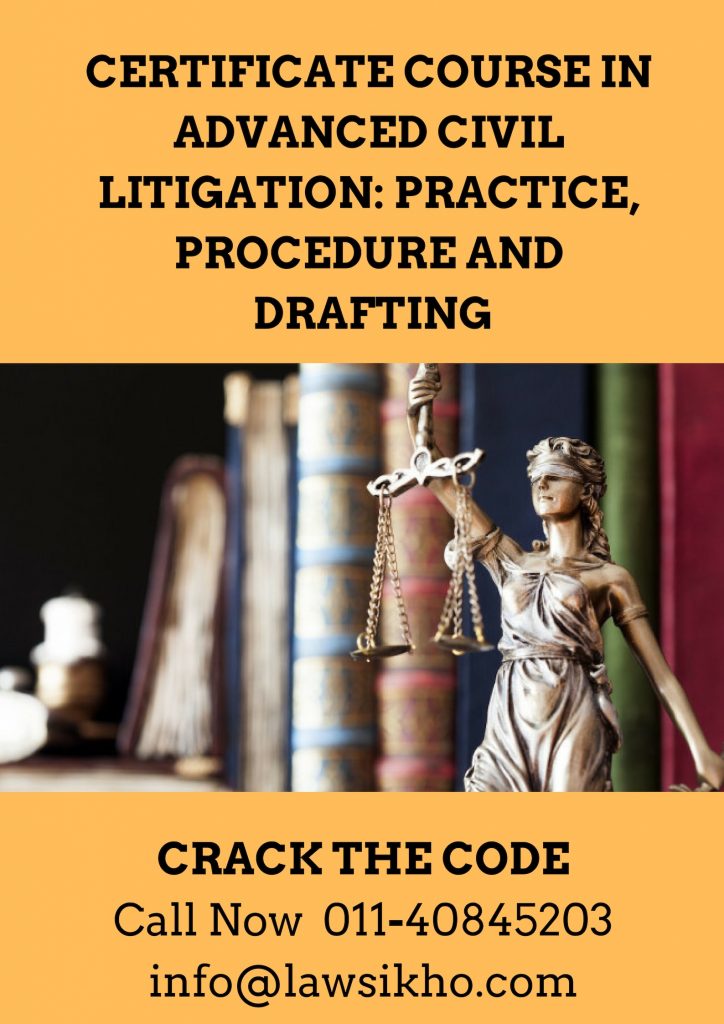This Article is written by Parshav Gandhi, a 3rd-year student, Indore Institute of Law. This article mainly discusses when the Mistake of Fact and Mistake of Law is considered as a valid defence and when it is not?

Introduction
Let us understand the concept of General Defences before we proceed to the concept of mistake of fact and Mistake of law.
General defences mean the set of defence i.e. excuses that help a person to escape his liability if his action qualified under the given provision of defences. If the defendant fails to prove why he has to do that act, he cannot escape from his liability. There are some specific defences which are available for the wrongful acts:
- Volenti non-fit injuria
- Plaintiff, himself the wrongdoer
- Inevitable accident
- Act of God
- Private defence
- Mistake
- Necessity
Mistake
There are two types of mistake which a normal person can do according to tort:
- Mistake of Law
- Mistake of Facts
In general, the mistake of law is no defence to the violation of the law. It is presumed that all people know and understand the law of the land, except minors, lunatics or insane. There are few other rare exceptions to this rule.
A mistake of fact can be an exception in reducing or eliminating the liability of the person. A person cannot escape his liability for intentional mistakes. A criminal defendant can argue that he/she never intended to commit the crime. The criminal act that occurred as a result of the mistake of fact as per the situation demands or misunderstanding. Such exception is only allowed when there’s a mistake of fact, but the mistake of law is not considered as a defence.
Meaning of Mistake of Facts
A mistake of fact arises when a person does any act but misunderstood some fact that negates an element of the crime.
A mistake of fact as a defence applies to various crimes. If the criminal defendant can prove that he does the act due to a mistake of fact or misunderstood some fact that negates an element of the crime.
Illustration
A takes his Labrador to the park every day so that he can play off leash with other dogs. One day, A lost sight of his dog for a few minutes. Well, he relocated the dog and walked towards the home. At home, he noticed a mark on the dog and came to the conclusion that it is not his dog, he mistakenly took another person’s dog with him. Here, A will not be liable because he gets the defence of mistake of facts.
In general, Mistake, whether of fact or of law, is no defence to the action of tort. When any person wilfully interferes with the rights of others, he has no defence that he believed that his actions were justified. Likewise, no one under a mistake of fact defames someone or enters anyone’s property.
If it is repeatedly told to an individual that it is not his property, he could not take it. It would no longer be a reasonable defence for him.
Illustration
A and B are playing games on a laptop in B’s house. At the time A leaves, he took the laptop from the table, believing that it was his laptop. B repeatedly told A that it was not his property and belonged to him. If then also A leaves with B’s laptop, in that situation A cannot take the defence of mistake of fact.
The mistake of fact can be used as a defence due to mens-rea as one of the important essentials. The mistake of fact must be honest and reasonable i.e., bona fide in nature. A defendant can not claim later that he or she was under the mistake of fact when she/he actually knew about the situation.
Illustration
A, jokingly, hit normally on B’s head from behind assuming him as C, his friend. Here A can take the defence of mistake of fact, as his act can be taken as a reasonable act because he was standing behind B and honestly assumed B as C.
The State of Maharashtra v. Mayer Hans George, 1965 AIR 722, 1965 SCR (1) 123
In this case, A is an officer of the court. Court ordered him to arrest Y. A arrest Z, as he believes Z to be Y. Here, A can take the ground of good faith or a bona fide intention as a defence in the mistake of fact.
There are some exceptions when the defendant may be able to avoid his liability:
A Mistake of Fact and not A Mistake of Law
This phrase means a defence of mistake of fact can be excusable but the defence of mistake of law is not excusable. It is assumed that every person knows the law of the country he resides in. if a person says, I do not know the law and does the act, it is not excusable.
However, if a person did a wrongful act by mistake of fact with a good intention and honest belief that he was bound to do, he may be excused.
Illustration
Situation 1
A is 17 years old went to buy wine from the wine shop. B, the owner of the shop honestly believed that A was above 18 years of age and as per law 18+ person can legally have wine. C, a policeman caught B for illegally selling wine to a child. Here B can take advantage of the mistake of fact because he honestly believes A to be 18+.
Situation 2
A has possession of a rifle without a licence. B, a policeman caught him. He asked for the defence of mistake of law i.e. he was unaware of the law. Here, A does not get any defence because it is assumed that every person knows the law of the land he resides in.
Good Intention
The word good faith here means the act is done with due care and proper attention. It also includes the genuine beliefs of a person. The burden of proof lies upon the accused, who wants to take the shelter of good faith.
Illustration
A enters on one way from the wrong side. A police officer caught him. He pleaded the mistake of fact because he was unaware that it was a one way. Here A does not get the defence because he should take proper care and attention, as there was a signboard present on the road which a reasonable man can easily see.
In good faith and believed to be justified by the law
A person can take the defence only when he acts in good faith and with good intention and believes that his act is justified by law.
In this case, the court held that the accused showed that he in good faith and believing that the offence of smuggling rice was going on in the plaintiff’s house and thus he brings the cart and Cartman to the police station. The said suspicion was proved to be wrong. The accused can take the defence of mistake of fact as he is doing the act in good faith and believing it to be justified by law.
The word justified, according to Black’s law dictionary means the act “Done on adequate reason sufficiently supported by credible evidence, when weighed by the unprejudiced mind, guided by common sense and by correct rule of law”.
The accused shot an innocent person mistaking him to be a thief, although he believes that he is bound to nab the thief. According to the officer’s finding, he was not in the position to apprehend him, fired at him. Here, he cannot take the defence of mistake of fact as the act done by him was not justified.
Mistake of Law
When a person commits any tort and asks for the defence that he does not know the law, that does is considered as a defence. Court thinks that every person knows the law of the country that’s why the mistake of law is not considered as a defence in IPC as well as in tort. The mistake of law is not considered as a defence.
Illustration
A murdered B, in this case, A cannot apply for the defence of mistake of law i.e. he was not aware of crime/law related to the murder.

A Mistake of Fact and Mistake of Law in I.P.C.
Mistake of Fact
Under section 76 of Indian Penal Code, the maxim ‘ignorantia facti doth excusat ignorantia juris non-excusat’ it means, a person has done an act which by law is an offence, under a misconception of facts, leading him to believe in good faith that he was commanded by the law.
Illustration
A, a police officer gets information that G is a gangster and running business of drugs. A went to arrest G but arrests B believing that he is G. Here A is acting under the command of the law and can take the defence of mistake of fact.
Section 79 Indian Penal Code, deals with the act of the person, by mistake of fact believing himself justified by law. If the criminal defendant can prove that he does the act due to a mistake of fact or misunderstood some fact, that will negate an element of the crime.
In Chirangi v. the State of M.P., (1952)53 CrLJ 1212 (M.P.)
In this case, a widower holding axe accompanied by his son, went to woods to gather ‘siadi’ leaves. After some time, his nephew discovered that the accused was sleeping under the tree and the child was missing. Later the child was found dead. It was transpired in evidence that the accused at the time being was seized of the state of mind in which he visualized that a tiger was going to attack him as by mistake he killed his son considering his son as the tiger. The court stated that it was a mistake of fact that immunized him from liability. He had no intention to kill his son.
State of Orrisa v. Khora Ghasi
The accused while guarding his field shot an arrow on the moving object in a good faith that it was a bear, but the shot results in the death of a person. Here, he gets the immunity under the mistake of fact.
Mistake of Law
The mistake of law is not considered as a defence. When a person commits any tort and asks for the defence that he does not know the law, the court does not considers it as a defence.
In Grant v. Borg (1982) 1 WLR 638 HL
In this case, the person was charged under the Immigration Act 1971, for staying beyond the time limit by the leave. Here, he cannot apply for the defence i.e. mistake of law.
Various perspectives on the concept of mistake of fact and mistake of law
The Equivalence View
Under this view, the mistake of law is treated in the same way as the mistake of fact. If murder requires knowledge that one has, in fact, caused the death of a human being, it should also require knowledge of how the homicide status defines “human being”.
Illustration
A mistakenly believed that killing a fetus inside mother womb is not an offence, he would not be liable.
The Liberal View
Under this view, the ignorance or mistake of law is considered as a defence, subject to reasonable grounds. The act should be done negligently.
Illustration
A, a doctor, while operating a patient, fails to remove his ring from the hand and the ring negligently remains in the patient’s stomach. Recently a law is passed that doctors have to remove all the accessories before the operation. A demands defence as he doesn’t know about this law because it is recently passed. Here A is not liable because the act has been done negligently and not in bad faith.
Moderate View
As per this view, Mistake of Law is sometimes a defence. it is based on reasonable grounds; mens rea might be required to that satisfy the elements of the crime.
One endorses a defence of reasonable ignorance of the law but not a defence of reasonable mistake of law.
Illustration
A, a foreigner in India, is caught drinking in a public place. Here he can take the defence, because he acted in good faith, believed that it is not a crime as similar in his country. But, if he knows that keeping a gun without a licence is a crime in India and still kept it, in this situation he is liable.
Conservative View
Under this approach, the Mistake of Law is never a defence because it is assumed that everyone knows the law of the land in which he resides. The mistake of fact can be in some cases considered as a defence, where the act is done in:
- Good faith.
- The act is justified.
- The person considered that the act he has done is justified by law.
Conclusion
In General, the mistake of law is no defence to a violation of the law. It is presumed that all people know and understand the law of the land, except minors, lunatics or insane. There are few other rare exceptions to this rule. On the other hand, the mistake of fact can be considered as a defence if a person does any act, which he honestly believed to be justified by law.
Students of Lawsikho courses regularly produce writing assignments and work on practical exercises as a part of their coursework and develop themselves in real-life practical skills.
LawSikho has created a telegram group for exchanging legal knowledge, referrals, and various opportunities. You can click on this link and join:
Follow us on Instagram and subscribe to our YouTube channel for more amazing legal content.
 Serato DJ Crack 2025Serato DJ PRO Crack
Serato DJ Crack 2025Serato DJ PRO Crack










 Allow notifications
Allow notifications


